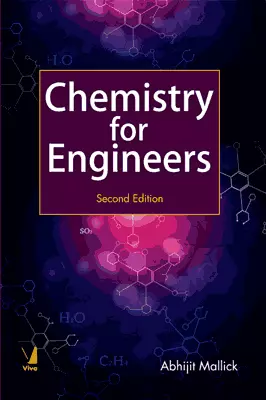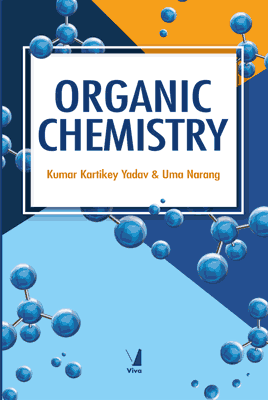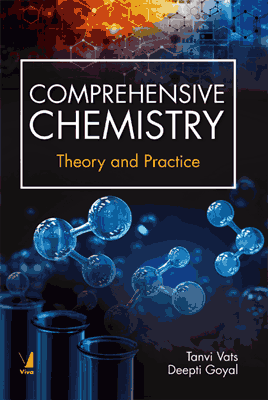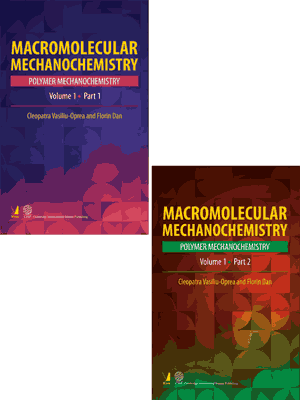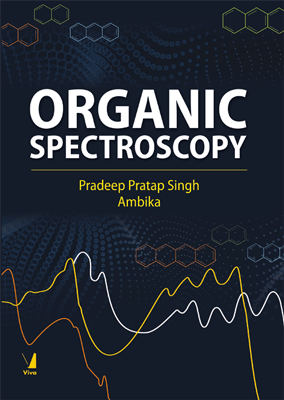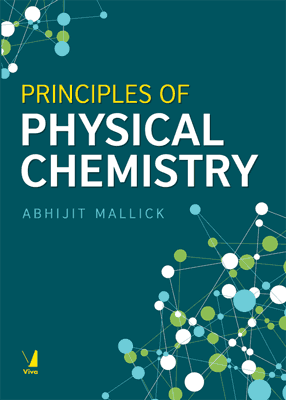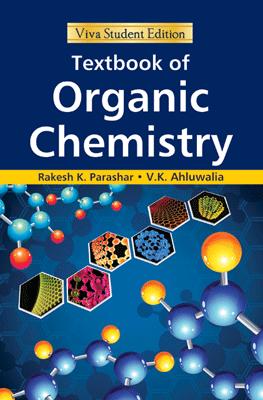
Textbook of Organic Chemistry
Textbook of Organic Chemistry
₹535.50 ₹595.00 Save: ₹59.50 (10%)
Go to cartISBN: 9788130917740
Bind: Paperback
Year: 2018
Pages: 504
Size: 153 x 229 mm
Publisher: Viva Books Originals
Sales Territory: Worldwide
Description:
Textbook of Organic Chemistry provides easy access to the core information in the field and makes a comprehensive approach to disseminate information in a clear and systematic manner. The book is presented and organized in a way to discourage students from rote learning. It covers all the topics in Organic Chemistry included in the syllabi of Indian universities for undergraduate courses. Special emphasis is given to the basic concepts viz. acids and bases, hybridization and resonance. Functional groups, which are extremely important for the understanding of Organic Chemistry, have been discussed along with the hydrocarbons and the organometallic compounds. Other important topics covered include sulfur compounds, oxidations and reductions. All the important topics are represented in a format which is ideal for learning and rapid revision.
Target Audience:
It covers all the topics in Organic Chemistry included in the syllabi of Indian universities for undergraduate courses
Contents:
Chapter 1 The Fundamental Concepts • Atomic Orbital • Electronic Configuration • Hybridization • Shape and Structure of Simple Molecules • Structural Formula • Dipole Moment and Electronegativity • Hydrogen Bonding • Steric Hindrance • Resonance • Chapter 2 Acids and Bases • Arrhenius Concept • Bronsted?Lowry Concept • Lewis Concept • Strength of Acids • Strength of Bases • Electronegativity • Inductive Effect • Resonance • Chapter 3 Reaction Mechanism and Reaction Intermediates • Reaction Mechanism • Reactivity of Substrate • Bond Fission • Reaction Intermediates • Reagents • Types of Reactions: Substitution Reaction, Addition Reaction, Elimination Reaction,Rearrangement Reaction • Chapter 4 Stereochemistry • Introduction • Isomerism: Structural Isomerism, Stereoisomerism • Chapter 5 Functional Groups • Introduction • Types of Functional Groups • Important Families of Organic Compounds • Chapter 6 Alkanes and Cycloalkanes • Introduction • Alkanes • Cycloalkanes • Chapter 7 Alkenes • Introduction • Nomenclature • Structure • Physical Properties • Preparation • Reactions • Test for Alkenes • Chapter 8 Alkynes • Introduction • Nomenclature • Structure • Physical Properties • Preparation • Reactions • Chapter 9 Aromatic Hydrocarbons • Introduction • Aromaticity • Preparation • Structure • Stability • Physical Properties • Chemical Properties • Nomenclature of Substituted Benzenes • Preparation of Monosubstituted Benzenes • Reactivity and Orientation of Monosubstituted Benzenes • Anomalous Behavior of Haloarenes • Chapter 10 Alkyl Halides and Aryl Halides • Introduction • Nomenclature • Physical Properties • Preparation • Reactions of Alkyl Halides • Reactions of Aryl Halides • Tests • Chapter 11 Organometallic Compounds • Introduction • Nomenclature • Structure and Bonding • Preparation of Grignard Reagent • Reactions of Grignard Reagent • Preparation of Alkyl lithium • Preparation of Lithium Dialkylcuprate • Preparation of Organozinc • Summary of Reactions of Grignard • Reagent • Chapter 12 Alcohols and Phenols • Introduction • Nomenclature • Physical Properties • Preparation of Alcohols • Preparation of Phenols • Reactions of Alcohols • Tests to Distinguish 1??, 2?? and 3?? Alcohols • Reactions of Phenols • Test for Phenols • Chapter 13 Ethers and Epoxides • Introduction • Ethers • Crown Ethers • Epoxides • Chapter 14 Amines and Diazonium Salts • Amines • Introduction • Nomenclature • Classification • Structure • Physical Properties • Preparation • Reactions • Tests for Amines and Separation of 1??, 2?? and 3?? Amines • Diazonium Salts • Nomenclature • Diazotization • Reactions • Use of Diazonium Salts in Organic Synthesis • Chapter 15 Nitriles and Isonitriles • Introduction • Nitriles • Nomenclature • Preparation • Structure • Reactions • Isonitriles • Structure • Reactions • Chapter 16 Aldehydes and Ketones • Introduction • Nomenclature • Structure • keto?enol Tautomers • Physical Properties • Preparation • Reactions • Test for Carbonyl Group • Tests for Aldehyde • Test for Ketones • Chapter 17 Carboxylic Acids and Their Derivatives • Introduction • Carboxylic Acids • Carboxyl Group • Nomenclature • Preparation • Physical Properties • Reactions • Derivatives of Carboxylic Acids • Acid Chlorides • Acid Anhydrides • Esters • Amides • Order of Reactivity of Carboxylic Acid Derivatives • Chapter 18 Sulfur Compounds • Introduction • Oxidation States • Nomenclature • Applications • Thiols or Mercaptans • Physical Properties • Structure • Preparation • Reactions • Thioethers or Sulfides • Preparation • Reactions • Chapter 19 Oxidation • Introduction • Oxidizing Agents • Manganese(VII) Oxidants • Chromium(VI) Oxidants • Peracids • Miscellaneous Oxidants • Oxidation of Individual Functional Groups • Oxidation of Hydrocarbons • Oxidation of Alcohols • Oxidation of Phenols • Oxidation of Aldehydes • Oxidation of Ketones • Oxidation of Amines • Chapter 20 Reduction • Introduction • Reducing Agents • Reduction of Individual Functional Groups • Reduction of Unsaturated Hydrocarbons • Reduction of Aromatic Hydrocarbons • Reduction of Alcohols and Phenols • Reduction of Aldehydes and Ketones • Reduction of Carboxylic Acids • Reduction of Nitro Compounds and Nitriles • Index.
About the authors:
Rakesh K. Parashar completed his Ph.D. form the University of Delhi in 1990in the area of Synthetic Organic Chemistry. Subsequently he pursued his post-doctorate from the University of Barcelona, Spain. He has published 25 papers in national and international journals of high repute. He has also delivered several lectures in India and abroad. He is the author of 6 books published by various Indian and international publishing houses.
Dr. Parashar holds the position of Associate Professor at the Department of Chemistry, Kirori Mal College, University of Delhi. He has been teaching undergraduate students and postgraduate students since 1990 and has research experience of more than 20 years.
V.K. Ahluwalia is a retired professor from the Chemistry Department, University of Delhi, Delhi. He has published 300 research papers and a large number of books.
